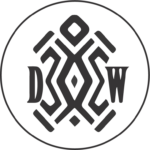I am currently debating if I should pursue more education or enter the workforce. I completed a 3 year degree in mathematics at Carleton University. As of this writing, I am on my second and final year of my education degree at the University of Ottawa to become a teacher. I could teach full-time comes September. It would be everything I ever wanted. So why am I not thrilled about it? Why does it feel as though I am settling too early and passing up my intellectual potential?
Doing a master’s in psychology calls to me right now. Maybe eventually completing a Ph.D. to be able to teach university courses. I love teaching. I love learning. I love the material and how I can apply it to my life. I love being able to inspire people to do the same and lead by example. How much is my inclination to go back to school just a product of not wanting to take responsibility and become an adult? The answer is not obvious to me. Sure, a part of this is to delay the fact that I will work for 30 years. But at the same time, why rush into it if I don’t have to? There is nothing specific to deter me from pursuing more education. There is the fact that I would need to complete a psychology undergrad before being able to apply for a master’s. That is a lot of schooling and a big commitment for something I am not sure what I want to do with.
We also need to consider the financial aspect of the situation. Doing a master’s costs approximately $10,000 in tuition per year. The beginner teaching salary in Ontario is around $50,000. That is a $60,000 net difference. This difference is enormous if you take into account the effects of compounding. Is money the only factor we need to consider? What would I do if I won 60 million dollars tomorrow? I would almost certainly pursue my educational goals. It might make makes sense to invest in myself early instead of going back to school down the road. I always try to live closely to how I would if money was not a factor. I am confident that things will work themselves out if I stay on the path of doing meaningful work. Even if I come out of school with a small debt, it will be nothing compared to most students’ debts. The financial opportunities that a master’s or Ph.D. will bring will by far outweigh the temporary dent in my bank account. There are many other factors that I do not want to bore you with. The point is that life is complicated. It is never black or white. It always has at least 50 shades of grey.
Should I go back to school or should I start working next year? I do not know. No one does and no one ever will. My mathematical background tricks me into thinking that we can determine which option will be best in the long term. Even looking back on a decision, it is impossible to know which option was best. You are only aware of how your life turned out with the decision you took. You would have to run a simulation to find out how your life would’ve turned out otherwise. Even in that case, there seems to be randomness in the fabric of reality. Thus, each time you run the simulation, a different outcome could occur. The point is that there is no way to know for sure that you are making the right decision. You just have to take a leap of faith in the direction of your moral compass and deal with the consequences of that decision onwards. That is the way of life. A series of decisions. We simply hope and do our best that our decisions get us closer to where we want to be and further away from where we don’t.
Don’t be a donkey.
Derek Sivers
There is not one good life. There is not one good option. Truth is, I think my life would be great whether I decided to go back to school or start working. It would just be different. I need to pick one side and fully invest myself in whatever I chose. The problem is when you stay indecisive. It is sitting on the fence that hurts. Not necessarily being on either side. Let me close this letter with the story of Buridan’s donkey.
Buridan’s ass a paradox whereby a hungry and thirsty donkey, placed between a bundle of hay and a pail of water, would die of hunger and thirst because there was no reason for him to choose one resource over the other.
Jean Buridan (c.1295–c.1358)
Make sure to read my updated thoughts on this decision now that I’m almost done my master’s in statistics (not psychology).
